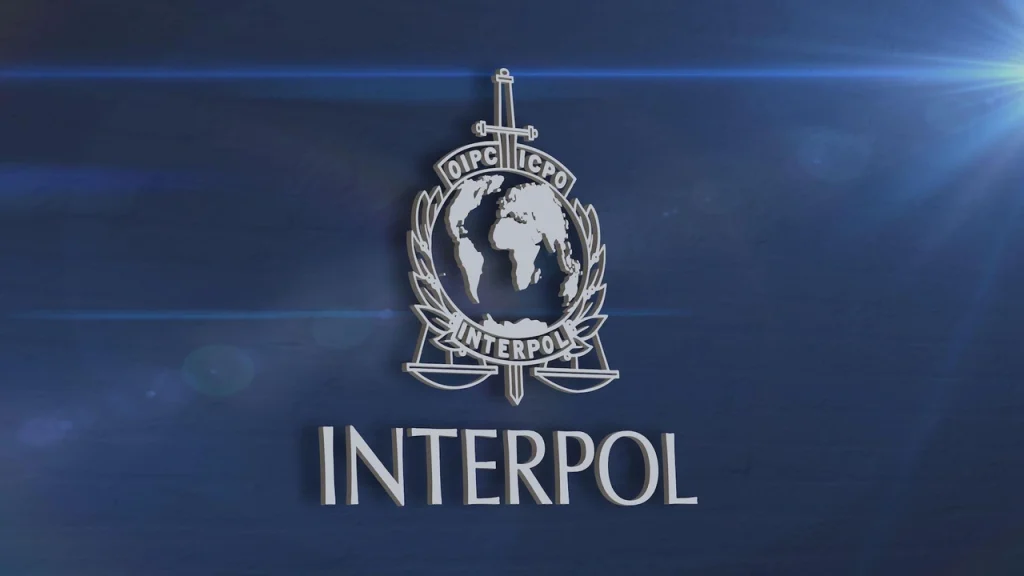The International Police Organisation‘s investigation has found that hundreds of millions of dollars are being laundered out of Nigeria every hour around the world.
This information was revealed on Monday in Abuja by Interpol Vice President for Africa, Garba Umar, at the start of a four-day training course for Nigerian law enforcement agencies at the Economic and Financial Crimes Commission (EFCC) Academy.
Umar remarked that money laundering has reached a monstrous size in Africa and around the world. To address this issue, Interpol has created Silver Notices.
“Evidence has shown that every hour, hundreds of thousands of dollars are flowing out of Nigeria to the region and across the world, laundered before it reaches the pockets of criminals to enjoy the profits of their crimes, while the hardworking and honest Nigerians pay the price of crime”
“With every successful laundering of criminal money, our country becomes more prone to crime. More drugs, more fraud, more corruption and more violence. Every time criminal money is successfully laundered, our financial institutions take an additional blow,” he said.
He emphasised that money launderers have difficult times ahead, as the deployment of Silver Notices will make it substantially more difficult to launder criminal cash around the world.
Speaking on the workshop’s theme of “Strengthening Capacity and Coordination Against Financial Crimes,” Umar emphasised that financial crimes have become transnational, demanding constant training for law enforcement authorities to keep ahead of fraudsters.
He encouraged workshop participants to engage in discussions and learn about transnational crimes that affect their regions, identify potential solutions through a review of policing capabilities, support the country, and facilitate direct and in-person interactions among law enforcement networks across the country.
“In essence, this Workshop will allow us to re-examine the challenges of fighting transnational crimes in the country, reassess our strategies, and reaffirm our determination and unity as a country to provide security to our citizens and by extension the global community,” he said.
Umar charged the workshop attendees to take collaboration with other law enforcement agencies seriously, to enhance their investigations, and to ensure that criminals do not reap the benefits of their efforts.
“The only way we can move forward as a country is to work together to identify common problems, devise solutions, and take coordinated and cohesive action.” And now is the moment to go far, united, he said.
In his goodwill message, EFCC Executive Chairman Ola Olukoyede emphasised the importance of partnership in combating financial crimes.
He emphasised that the complicated nature of corruption around the world could only be broken via the power of coordinated effort by all stakeholders. “The daunting nature of the fight against corruption in Nigeria and the world at large deserve serious collaboration among organisations saddled with the responsibility of fighting corruption” , according to him.
Olukoyede, who spoke through the Director, Fraud Risk Assessment and Control, FRAC, of the EFCC, appraised the pivotal role of the EFCC in tackling corrupt practices, especially its impressive records of convictions and recoveries. He expressed optimism that the commission’s new emphasis on the preventive framework in tackling financial crimes would lead to greater progress.
“Our records of convictions and recoveries stand us out, but we will not rest on our oars, we are committed to doing more and in this commitment, the EFCC is re-strategising its operations with a focus on prevention knowing that it is easier and cheaper to prevent corruption from happening than investigating and prosecuting corruption,” he said.
Kazuyoshi Matsunaga, Japan’s Ambassador Extraordinary and Plenipotentiary to Nigeria, praised the workshop as an important cooperation action between Japan and Nigeria to tackle financial crime.
In today’s globalised society, fighting financial crimes requires international collaboration among law enforcement agencies.
“I am glad that INTERPOL and the Japanese National Police Agency are involved in this effort, giving their knowledge. A unique collaboration occurred three years ago when Japanese and Nigerian law enforcement organisations successfully returned a sum to a Japanese fraud victim, generating enormous goodwill. Strengthening our collaboration through this project will benefit not only Nigerians but people all across the world, especially the Japanese,” he stated.
Hafsat Bakare, Director General and Chief Executive Officer of the Nigerian Financial Intelligence Unit (NFIU), spoke about the importance of increasing capacity and coordination in the fight against financial crimes, stating that “financial intelligence and financial analysis techniques are key to tackling economic crimes”.
The NFIU recognises the interconnectedness of the criminal justice system, the threat of organised crime, and the need for law enforcement agencies to combat cybercrime.
She hopes that the Workshop’s training for law enforcement personnel would help sustain efforts to remove Nigeria from the Financial Action Task Force’s Grey List by mid-2025.
Interpol’s Director of the Financial Crime and Anti-Corruption Centre (IFCACC), Isaac Oginni, believes that disrupting organised crime requires denying fraudsters financial advantage. Furthermore, financial information can be used effectively when investigators understand its significance and use it to create a financial profile of suspects.
He challenged the workshop’s attendees and stakeholders to work together to combat money laundering.
“Each agency represents a distinct piece of the puzzle due to our unique strengths and mandates. Each component of the puzzle contributes to the larger picture, and even one missing piece prevents the entire picture from developing,” he explained.
“Today, we will commence the first phase of the Interpol/JICA workshop, a capacity-building project that aims to strengthen Nigeria’s safety through enhancing law enforcement’s capacity to combat financial crime, as well as through increased national cross-agency collaboration and cooperation,” said the man.
The four-day course, the first of its type and held by the EFCC, was organised by INTERPOL and the Japan International Cooperation Agency, or JICA.The event included representatives from the Police, EFCC, NFIU, Nigeria Immigration Service, and Nigeria Customs Service.

